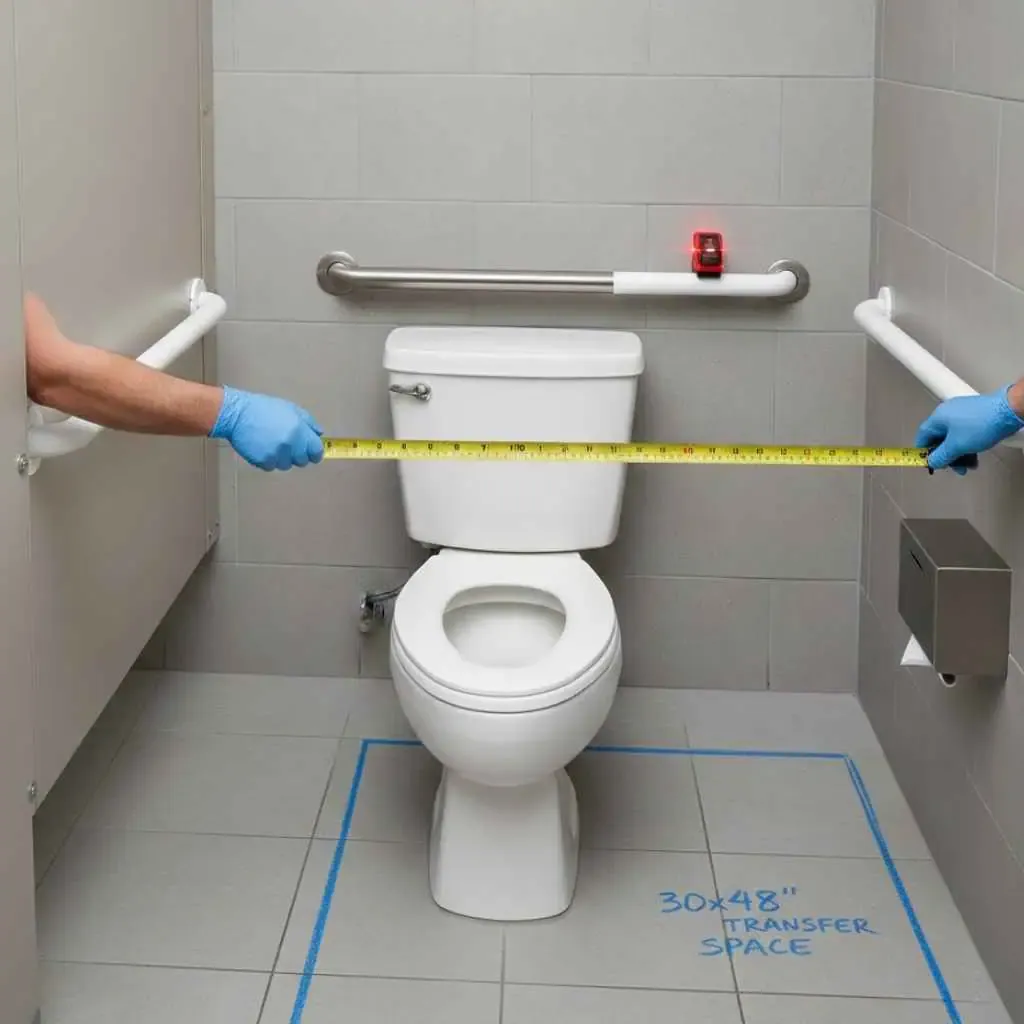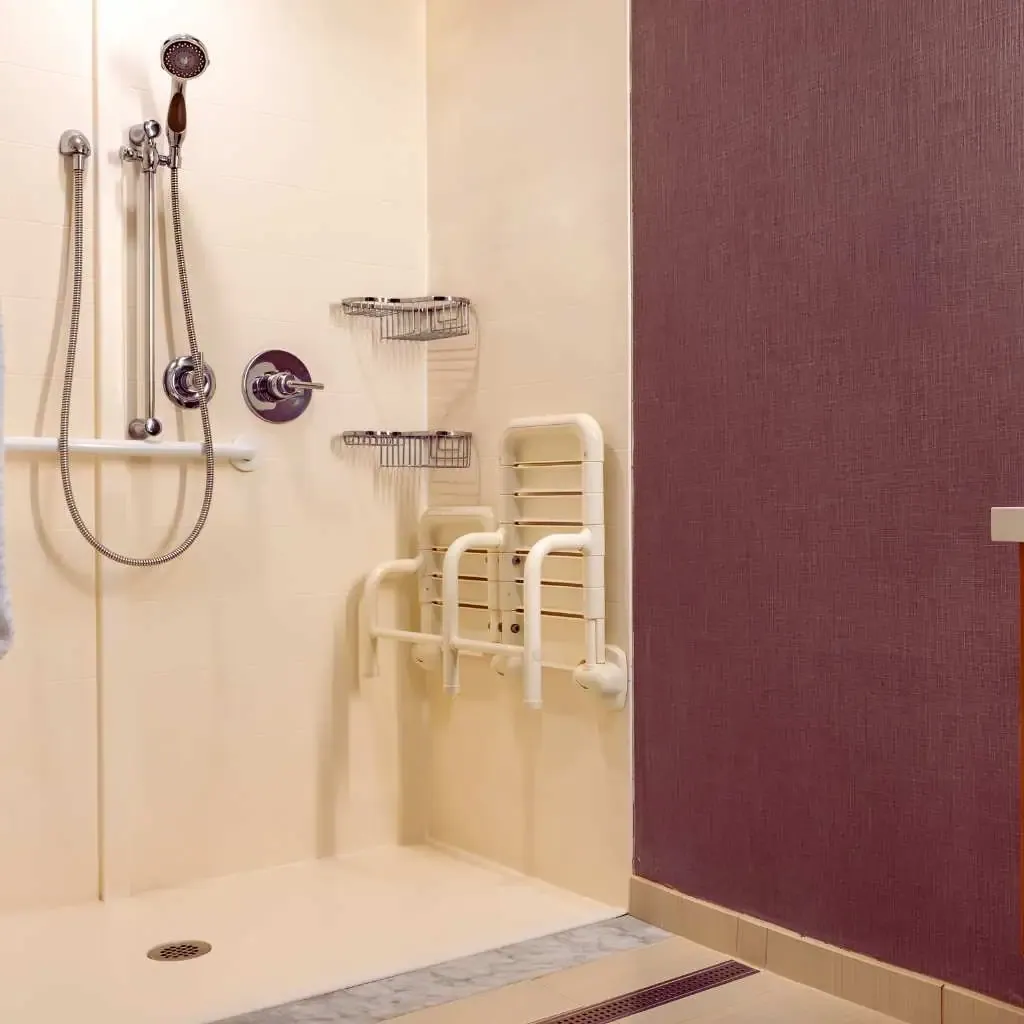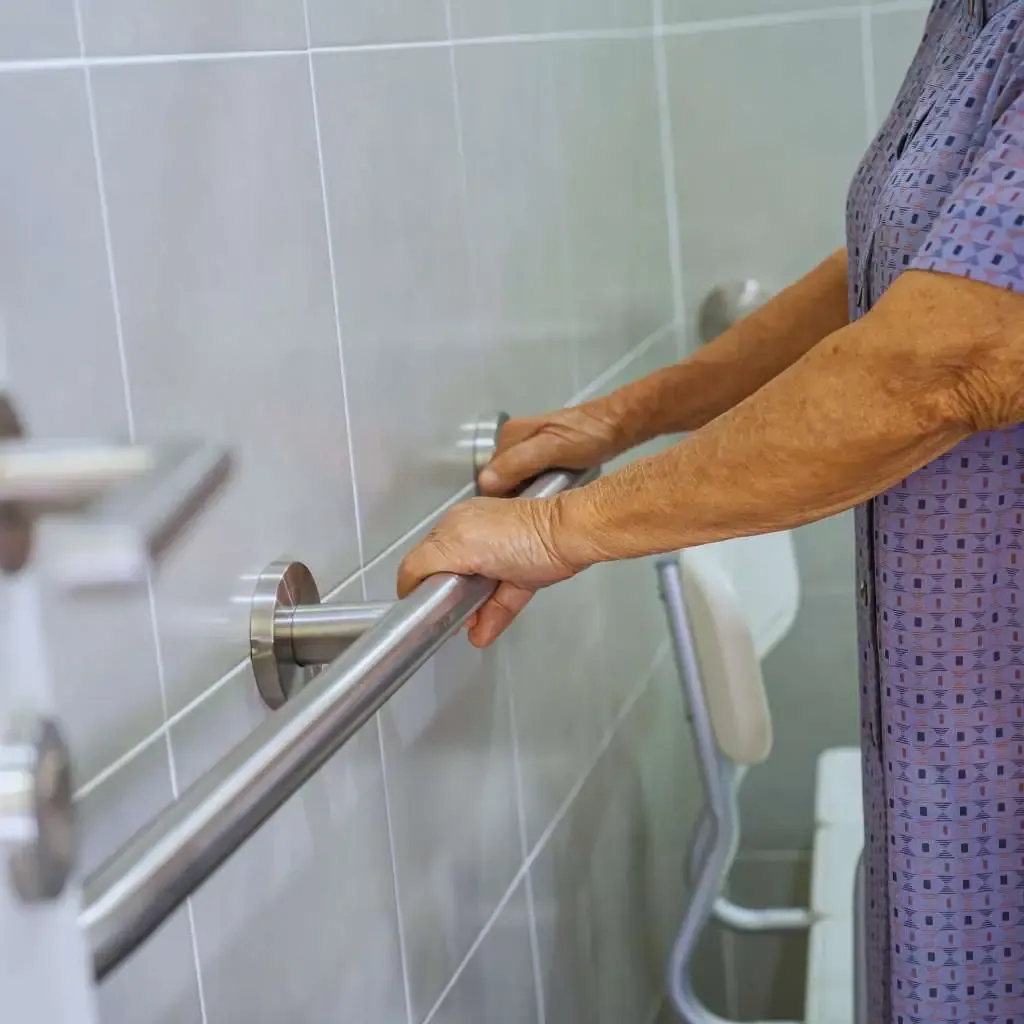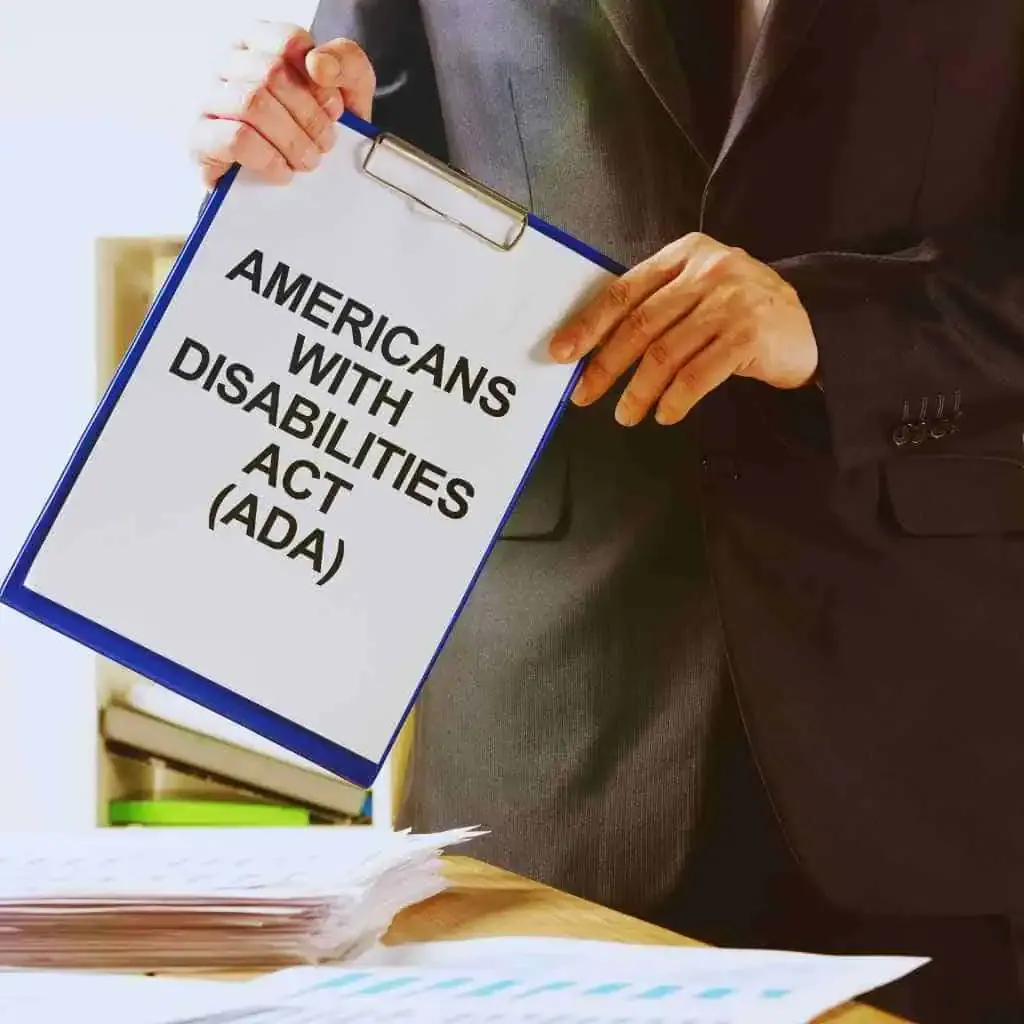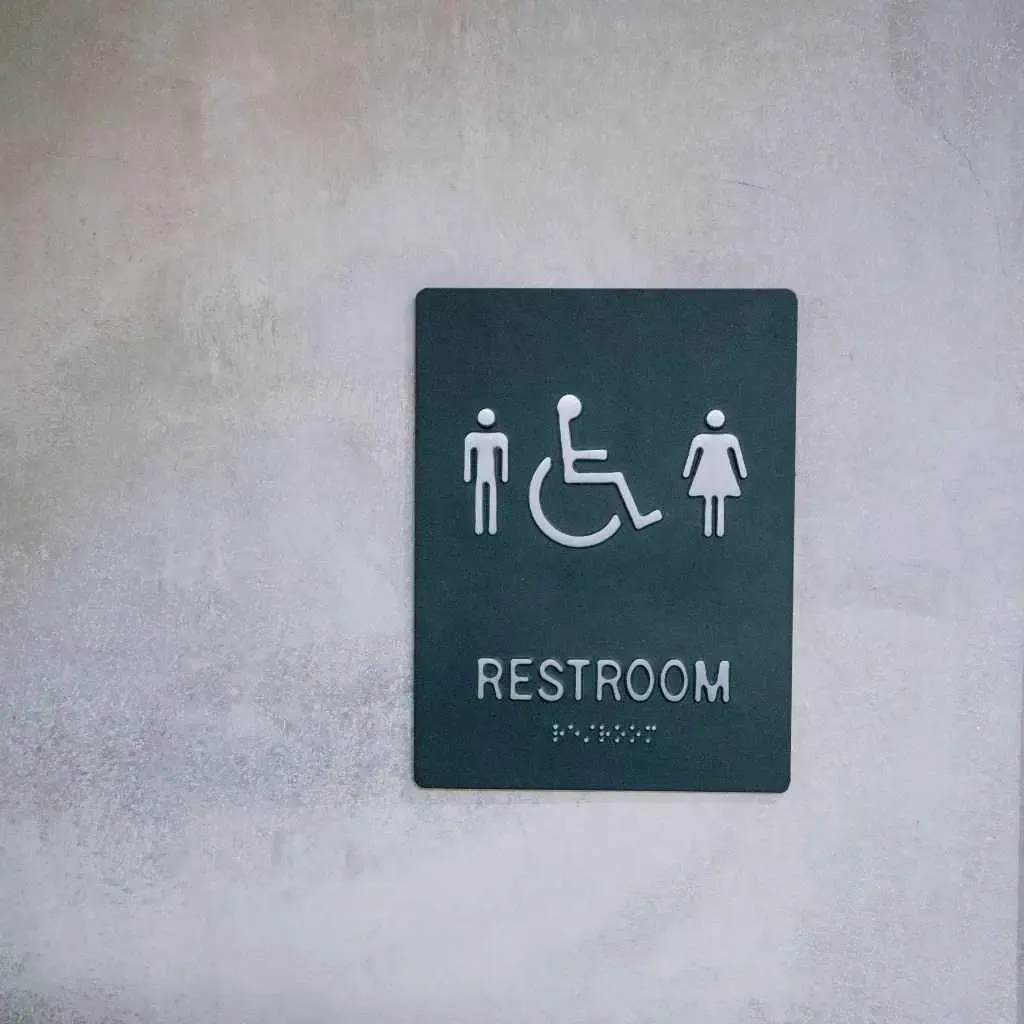Fresno CASp Inspections | Lower ADA Lawsuit Risk With Proactive Compliance
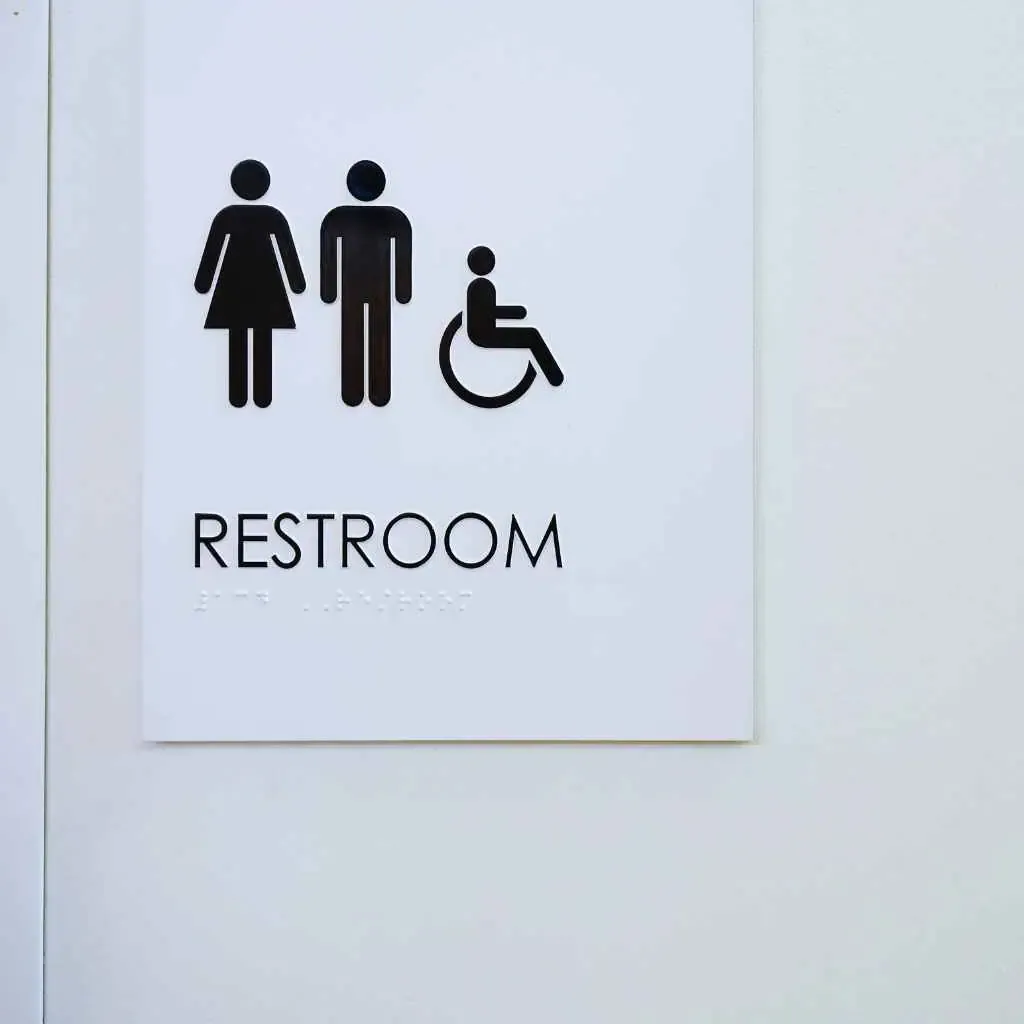
ADA lawsuits don’t just happen they build over time. A missing sign here, a slope that’s a few degrees too steep there and suddenly, a Fresno business is hit with a demand letter or worse, a federal complaint. But here’s the thing: most of these accessibility issues can be spotted and resolved before they ever become legal liabilities. That’s exactly where a Certified Access Specialist (CASp) inspection comes in.
A CASp inspection isn’t just a checkbox. It’s a legal shield, a strategic tool that shows you’re doing your part to comply with the Americans with Disabilities Act (ADA). For businesses in Fresno, where local litigation risk is real and growing, this proactive step can make all the difference. Whether you operate a restaurant in the Tower District, a hotel near Highway 41, or a gas station in Southeast Fresno, having a valid CASp report signals your intent to comply and that matters in court.
In this article, we’ll break down how CASp inspections help you avoid lawsuits, what common triggers to look out for, and how Fresno businesses can stay protected with the right compliance strategy.
Why ADA Lawsuits Happen in Fresno
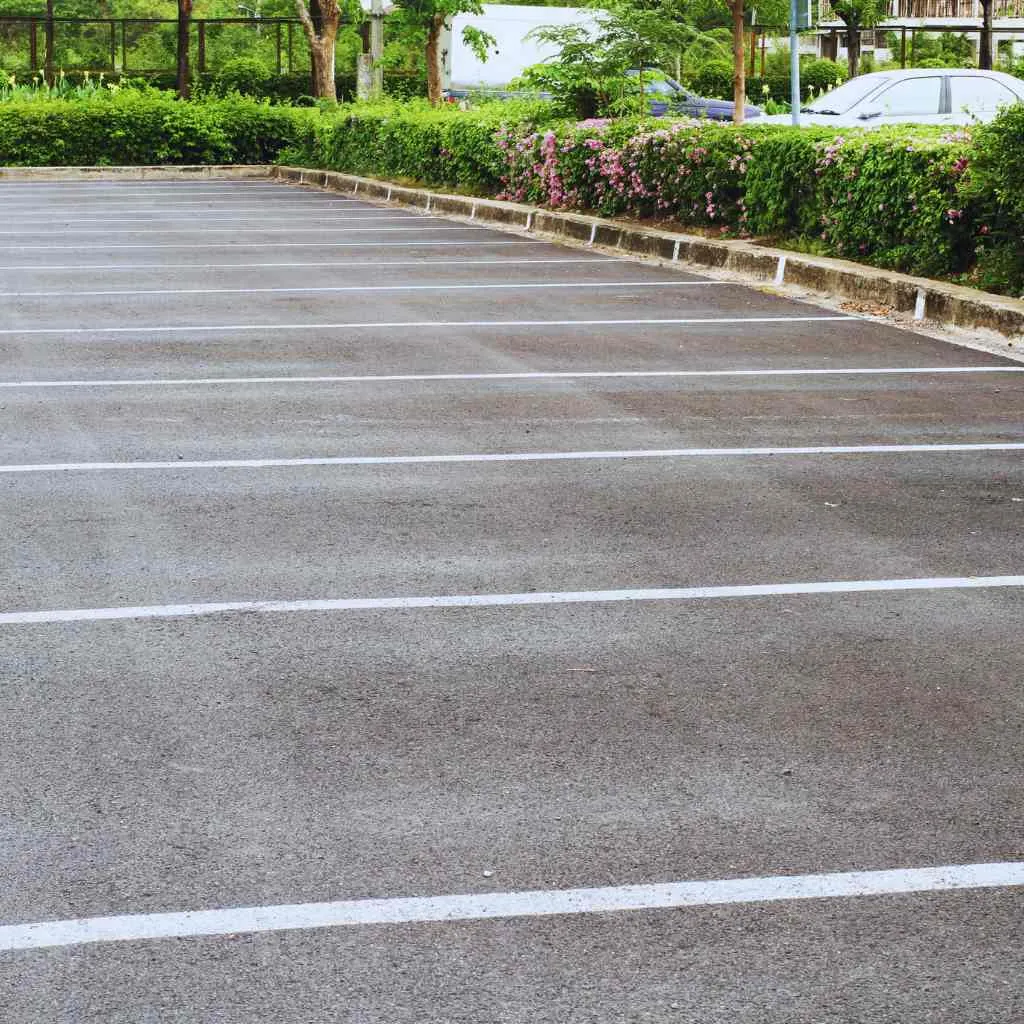
What triggers the most common ADA violations in California?
The majority of ADA lawsuits stem from everyday features most property owners overlook until someone files a complaint. These violations aren’t always malicious or negligent. Often, they’re remnants of older designs, quick fixes, or assumptions about what “accessible” means.
Here are the most frequent culprits that land Fresno businesses in legal trouble:
Non-compliant entrances, restrooms, and parking lots
A slightly raised threshold, a narrow bathroom stall, or a slope that exceeds 2% can all trigger claims. Parking lots accessibility are especially risky—spaces without proper striping, signage, or access aisles are some of the most cited ADA violations.Outdated signage or incorrect slope/grade
Even when ramps or walkways exist, if the slope exceeds the California Building Code limits or if signage is missing or improperly placed it can be grounds for a lawsuit. These are often flagged during CASp inspections before they escalate.Digital accessibility issues
ADA compliance doesn’t stop at the front door. Businesses using online menus, contact forms, or third-party booking systems can be sued if their digital platforms aren’t usable with screen readers or keyboard navigation. This is especially important for restaurants, hotels, and schools in the Fresno area.
How often do small businesses get sued under the ADA?
California leads the nation in ADA Title III lawsuits and small businesses are the primary target. In 2023 alone, over 4,800 federal ADA lawsuits were filed in California, with Central Valley cities like Fresno and Bakersfield seeing steady increases (source: Seyfarth Shaw LLP).
Why so many? California’s Unruh Civil Rights Act allows plaintiffs to claim monetary damages on top of federal relief—which makes lawsuits financially attractive to serial filers. That’s why even mom-and-pop shops in Fresno aren’t exempt. Restaurants, salons, repair shops, and small medical offices are often targeted because they’re less likely to have done a recent CASp inspection.
What does “drive-by ADA lawsuit” mean and why is Fresno at risk?
A drive-by ADA lawsuit refers to claims made after a plaintiff (or their legal representative) spots a visible violation—often without entering the premises. These suits are usually filed masse by a handful of serial litigants targeting dozens or hundreds of businesses across one region.
Fresno is particularly vulnerable for three reasons:
High visibility and sprawl
With so many standalone strip malls, aging commercial buildings, and legacy storefronts, Fresno offers easy scanning of parking lots, ramps, and access routes from the street.Legal environment
The Central Valley has seen increasing ADA lawsuit activity, often clustered around underserved neighborhoods where older buildings haven’t been retrofitted to modern compliance standards.Lack of proactive compliance
Many Fresno businesses haven’t yet scheduled a CASp inspection or developed a transition plan—making them low-hanging fruit for drive-by lawsuits.
A 2022 sweep saw more than 30 businesses along Shaw Avenue sued in a single month. Most could have prevented the risk with a basic CASp audit and a posted inspection notice.
What Is a CASp Inspection and What Does It Cover?
How is a CASp inspection different from a regular building inspection?
Here’s the thing a CASp inspection is a legal assessment, not just a structural one. Most building inspectors check for safety, HVAC systems, fire compliance, and basic code adherence. CASp inspectors, on the other hand, are certified by the State of California to assess compliance with the Americans with Disabilities Act (ADA) and California Building Code accessibility standards.
But the real difference isn’t just in what’s inspected it’s in what protection it gives you.
Under California Senate Bill 1608, a CASp inspection qualifies property owners or tenants as a Qualified Defendant if a lawsuit is filed. That’s not just a technicality—it can be a major shield against ADA litigation.
What does a CASp report include?
A professional CASp report is more than a checklist. It’s a comprehensive compliance blueprint.
Here’s what you can expect:
Detailed property evaluation
The CASp will review your building’s exterior, interior, restrooms, parking areas, entry paths, ramps, signage, counter heights, and more essentially any point where accessibility laws apply.Photo documentation
Each non-compliant feature is documented with photos, measurements, and code citations. This makes it easy to prioritise and budget future fixes.Barrier removal plan
You’ll receive a written plan that outlines what needs to be corrected, why it matters under state or federal law, and the timeline based on feasibility. This is your legal roadmap—and it matters if you’re trying to reduce risk or sell the property.
If you opt for a CASp inspection with a compliance plan, you’re also allowed to post a notice on your building stating you’ve been inspected. This signals to potential litigants (and courts) that you’re actively working toward compliance.
Can CASp inspections protect you from lawsuits?
Yes—and the protection is significant. When you’ve completed a CASp inspection before being served a lawsuit, California law gives you “Qualified Defendant” status.
Here’s what that unlocks:
Reduced statutory damages
Instead of the default $4,000 per violation under the Unruh Civil Rights Act, you may qualify for reductions to $1,000 per violation or even less if the issue was addressed promptly or if you had a transition plan in place.A 90-day stay of legal proceedings
This gives you time to fix the issue without the pressure of mounting legal costs. Courts grant an automatic stay once you file your CASp inspection and request early evaluation.Good faith in court
Judges tend to look more favourably on businesses who can demonstrate proactive effort. Having a CASp report shows you’re not ignoring compliance—you’re actively working toward it.
For businesses in Fresno where ADA lawsuits are increasingly common this legal buffer can be the difference between a manageable fix and a financially draining court battle.
Fresno-Specific ADA Compliance Considerations
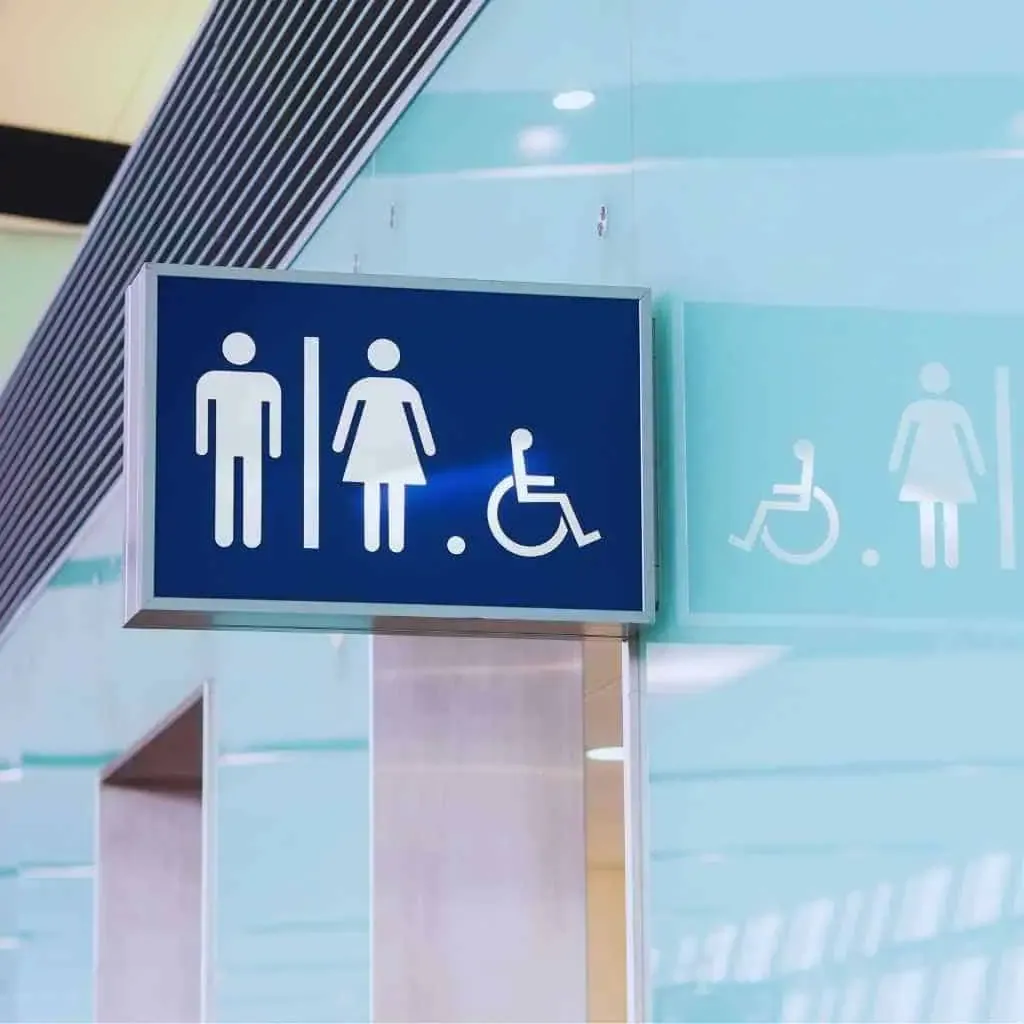
Fresno isn’t just another California city when it comes to ADA compliance. Its mix of aging infrastructure, rapidly redeveloping corridors, and overlapping local laws makes it a uniquely tricky environment for business and property owners trying to stay ahead of accessibility rules.
What makes Fresno properties more vulnerable?
Many buildings across Fresno especially in older commercial corridors like downtown and Tower District were built long before accessibility was a design priority. These properties often come with physical barriers baked into their original construction:
Aging infrastructure: Narrow doorways, non-compliant restrooms, and missing ramps are common in older retail spaces and office buildings.
Redevelopment zones: Properties in revitalization areas may look modern on the outside but still carry legacy non-compliance issues underneath.
Extra layers of regulation: Fresno properties must comply with both federal ADA standards and California Title 24, which is often stricter. On top of that, local municipal codes may impose additional requirements tied to zoning or building permits.
This layered legal structure means even well-meaning business owners can fall out of compliance without realizing it—until a demand letter lands in the mailbox.
Who enforces ADA compliance in Fresno?
Several authorities play a role in ADA enforcement here, and that’s part of what makes compliance feel so complex.
Federal oversight: The U.S. Department of Justice (DOJ) handles ADA enforcement at the national level. They pursue major violations and oversee broad patterns of non-compliance.
State enforcement: In California, the Division of the State Architect (DSA) oversees CASp programs and enforces Title 24 mandates through certified professionals.
Local enforcement: The Fresno Building Department adds another layer by ensuring that new construction and remodeling projects meet all accessibility standards before issuing permits or approvals.
What this really means is: even if you think you’re “ADA compliant,” you may still be vulnerable if you haven’t accounted for all three jurisdictions. This is where CASp inspections shine they proactively identify those cross-agency risks before enforcement catches up.
How Proactive CASp Inspections Help Reduce Risk
If you’re only thinking about ADA compliance when a lawsuit hits or a renovation starts, you’re already behind. Compliance isn’t a checkbox—it’s a moving target tied to your physical space, customer experience, and legal exposure. CASp inspections offer a way to get ahead of the curve.
Is ADA compliance reactive or proactive?
Think of it like this: a fire marshal walks into your business, finds a blocked exit, and gives you a warning no one’s suing you yet, but the liability is clear. Now compare that to accessibility.
ADA violations don’t always come with a heads-up. They often start with a demand letter, not a friendly inspection. That’s why relying on traditional building inspections (which typically check for code and safety, not access barriers) is a reactive approach.
CASp inspections flip the script. They’re about identifying potential ADA violations before they become legal threats. That shift—from reaction to prevention is where the real risk reduction happens.
How often should Fresno businesses do ADA inspections?
There’s no strict legal schedule, but smart operators treat CASp reviews like fire safety audits or HVAC servicing: they’re routine, not rare.
Annual checkups help catch minor changes like slope shifts in parking lots or new fixtures installed during upgrades—that could trigger violations.
Post-renovation reviews ensure new construction didn’t accidentally introduce non-compliant elements.
High-traffic industries like restaurants, event venues, and healthcare facilities should consider more frequent reviews, especially if they serve diverse physical abilities or vulnerable populations.
In Fresno, where redevelopment is active and climate conditions affect exterior surfaces, regular reviews are especially important for staying ahead of slope changes, signage wear, and new ADA interpretations.
How to develop an ADA compliance maintenance plan?
One inspection isn’t enough. Businesses that stay out of court usually have a repeatable system for maintaining access compliance.
That includes:
Scheduled inspections—CASp or internal reviews every 12–24 months.
Staff training—your employees should understand basic ADA responsibilities, from doorway clearance to temporary obstructions.
Design reviews—before any remodel, addition, or new signage, involve a CASp to check design plans against ADA and Title 24 requirements.
What this really means is: if you treat ADA like part of your ongoing operations not just a one-time fix you reduce long-term exposure, improve accessibility, and stay ahead of Fresno’s legal curve.
Common Mistakes Fresno Businesses Make (and How to Avoid Them)
Most ADA lawsuits don’t stem from defiance they come from assumptions. Owners think they’re covered. Managers believe “it’s been this way for years, so it must be fine.” But in California, particularly in high-risk zones like Fresno, that thinking can get expensive.
“We thought we were compliant” — top oversights
This is probably the most common phrase CASp inspectors hear, usually followed by one of these issues:
Wrong ramp slope – Even small grade miscalculations, especially in older shopping centers or converted buildings, can trigger a violation.
Missing van-accessible signage – Just having a wider space isn’t enough; proper signage and striping are mandatory under both ADA and California Title 24.
Inaccessible restrooms – Clearance, door handles, mirror heights, and turning radius all need to be just right. One overlooked feature can create a barrier.
These aren’t obscure, hard-to-spot problems. They’re everywhere—especially in businesses that have done light renovations without updated design reviews.
Waiting until you get sued
By the time you’re reading a demand letter, it’s already too late to “fix and forget.”
Lawsuits in California often result in statutory damages—up to $4,000 per violation, per visit, under the Unruh Civil Rights Act.
Legal defense costs can balloon into tens of thousands, even for small infractions.
In contrast, a CASp inspection typically costs far less than one month of legal fees, and it gives you legal tools (like “Qualified Defendant” status) to mitigate or even avoid liability.
Fresno’s litigation history shows that waiting is the most expensive option.
Ignoring digital accessibility
This one’s newer but just as risky.
Websites, kiosks, online menus, and booking tools are now routinely cited in lawsuits, especially in California. If your website doesn’t comply with WCAG (Web Content Accessibility Guidelines), you’re exposed to the same types of ADA claims as with a physical space.
For example, restaurants and service businesses in Fresno have been sued for:
Online booking tools without screen-reader compatibility
PDF menus that aren’t accessible via keyboard navigation
Missing alt-text on key product or service images
Ignoring your digital footprint is no longer safe. Even businesses with perfect physical accessibility can be vulnerable online. For broader coverage, see our ADA website compliance overview, especially relevant for California restaurant owners managing both in-store and online experiences.
Is CASp worth it for small businesses?
For many Fresno business owners, the idea of paying for a CASp inspection feels like a “nice-to-have” rather than a necessity—until they’re named in a lawsuit. So, is it worth it?
Let’s look at what CASp really offers.
Legal shield, not just a checklist
CASp inspections aren’t just for show. If your business is inspected by a Certified Access Specialist and documented properly, you can be designated a Qualified Defendant under California law. That’s a big deal. It means:
You may qualify for a 90-day pause on legal proceedings, giving you time to fix issues without the pressure of court deadlines.
You could reduce or avoid statutory damages under the Unruh Civil Rights Act.
You show a “good faith effort,” which courts tend to view favourably—even in tough cases.
This isn’t hypothetical. In California, CASp protections have shielded hundreds of small businesses from the full weight of ADA litigation.
Long-term savings that actually add up
Sure, inspections cost money. But so do lawsuits. The average ADA settlement in California can run between $10,000 to $20,000, and that’s without counting attorney fees, renovations under a time crunch, or lost business during disputes.
A CASp inspection especially one tailored to parking lot compliance, restroom layout, or entry access barriers—typically costs less than what you’d spend on a single month of legal defense. And it often catches small fixes before they become legal liabilities.
Trust and reputation matter
Customers notice accessibility. Whether it’s a clearly marked van-accessible space, a smooth entrance ramp, or an easy-to-navigate restroom, these things send a signal: everyone is welcome here.
Small businesses in Fresno compete on trust. Being proactive with ADA compliance shows integrity—and that builds customer loyalty over time.
In short, CASp is not just compliance insurance. It’s smart risk management, a reputation booster, and a practical cost-saving tool.
What to Expect From a CASp Inspector in Fresno
Not all inspectors are equal—and not all ADA inspectors are actually Certified Access Specialists. In California, CASp inspectors are licensed through the Division of the State Architect (DSA), which issues official CASp license numbers. Before hiring, ask for that number and verify it using the DSA’s public CASp database.
Beyond licensing, you want someone who understands local conditions. Fresno has its own mix of ADA challenges—aging buildings, high redevelopment areas, and intersections between city and state regulations. A good CASp inspector in Fresno should know the difference between California Title 24 and local amendments enforced by the Fresno Building Department.
What questions should you ask before hiring?
Here’s where most property owners miss the mark: they don’t interview their inspector. You should.
Ask things like:
Have you worked with my property type before?
Retail shops, gas stations, restaurants, schools, and pools all come with different compliance issues. Your inspector should know what to look for before showing up on site.How fast will I get the report?
Timing matters. Whether you’re planning renovations or responding to a legal notice, you need to know how quickly the CASp report—and any follow-up documentation—will arrive.Do you offer post-inspection support?
This matters more than most realise. Some inspectors will hand over a report and disappear. Others will walk you through implementation steps, coordinate with contractors, and help build your ADA maintenance plan. That support can be the difference between knowing what’s wrong and actually fixing it.
Want peace of mind that your inspector knows what matters most in Fresno? Look for someone who understands both statewide CASp procedures and Fresno-specific enforcement overlaps, especially for high-risk zones like parking lots and public restrooms.
Next Steps: Building a Smart ADA Compliance Strategy
What Fresno businesses should do now
If you own or manage a commercial property in Fresno, here’s what needs to happen next—not months from now, but now.
Start with a site audit. This is your baseline. A certified CASp inspector will identify every barrier that could lead to a violation ramps, signage, restrooms, parking spots, even website access points if needed.
Next, create a prioritized barrier removal plan. The keyword here is prioritized. You don’t need to fix everything at once. CASp reports break down which issues are high-risk and which can wait. This roadmap is your legal defense if a lawsuit does come knocking.
Finally, set a schedule for periodic re-evaluations. ADA compliance isn’t a one-and-done task. Buildings change. Tenants update interiors. Codes evolve. A smart business will recheck accessibility annually or after any major renovation.
How to find the right consultant
Finding a qualified CASp inspector isn’t about grabbing the first name on Google.
Use the official CASp directory to search for licensed professionals in Fresno. This guarantees your inspector is recognised by the California DSA and provides the legal protections under SB 1608.
But don’t stop there. Read reviews. Ask for referrals. Look for consultants who:
Specialise in your type of property (e.g. restaurants, gas stations, schools)
Offer post-inspection support—not just a report, but help implementing the fixes
Understand both California Title 24 and local Fresno enforcement patterns
If you’re serious about risk reduction and long-term savings, don’t treat ADA like a checkbox. Treat it like an essential part of your business strategy.
Why this isn’t just a legal issue—it’s a business strategy
ADA compliance often gets framed as a box to tick, or a lawsuit to avoid. But that’s missing the bigger picture. What this really is smart business planning.
Start with risk management. A CASp inspection is essentially a liability checkup. Just like you’d get a fire safety audit or cybersecurity assessment, an accessibility review helps you avoid six-figure legal hits that could derail your operations overnight.
Then there’s public perception. Consumers in Fresno—and across California—are watching. An accessible storefront, well-marked parking, and thoughtful layout signals that your business is professional, attentive, and inclusive. It builds trust before a customer even walks through the door.
And yes, there’s inclusivity. This isn’t just a moral checkbox. An estimated 1 in 4 adults in the US lives with a disability. Making your space accessible means welcoming a wider customer base, hiring a more diverse staff, and building goodwill that lasts.
So, here’s the bottom line: ADA compliance isn’t just about avoiding fines. It’s about protecting your reputation, reducing future costs, and doing the right thing. And that starts with having the right plan—and the right inspector.
Real Questions Business Owners Are Asking
Do CASp inspections make you lawsuit-proof?
No, but they offer strong legal protection.
Getting a CASp inspection doesn’t guarantee you’ll never face an ADA lawsuit—but it does give you “Qualified Defendant” status under California law. That means you’re entitled to a 90-day legal pause (a stay), reduced penalties, and the opportunity to fix barriers before court escalations. It’s the best shield a California business can legally carry.
Can I get fined even if I didn’t know I wasn’t compliant?
Yes. ADA laws are strict liability.
Intent doesn’t matter in most ADA cases—only whether your property is compliant. A business can be fined or sued even if they had no idea they were violating access laws. This is why proactive inspections matter. It’s also why courts often look more favorably on businesses that document good-faith efforts through CASp.
Do online-only businesses need ADA compliance?
Yes, digital spaces fall under the ADA too.
Websites, booking portals, online menus, and mobile apps must be accessible to people with disabilities. That means meeting WCAG guidelines for things like keyboard navigation, screen reader compatibility, and colour contrast. Even if you have no physical storefront, the ADA still applies.
What happens if I ignore a CASp report?
You lose the legal protections it offers.
Getting a CASp report isn’t enough. To maintain “Qualified Defendant” status, you need to demonstrate progress—starting barrier removal, updating signage, documenting repairs. Ignoring the report entirely puts you back at square one: full exposure to lawsuits and statutory damages.
How long does it take to fix ADA issues after inspection?
It depends on the severity, but many fixes are fast.
Some issues—like missing signs or high door thresholds—can be resolved within days. Others, like re-sloping a parking lot or retrofitting restrooms, may take weeks and require permits. What matters is starting the process and documenting your timeline. CASp consultants often help develop that phased plan.
Quick Snapshot: ADA Compliance & CASp in Fresno
| Topic | Key Insight |
|---|---|
| Why ADA lawsuits happen | Most Fresno cases stem from parking, restrooms, entrances, and outdated signage. Digital accessibility is also rising. |
| Top violation triggers | Slope errors, missing van signs, inaccessible restrooms, non-compliant websites. |
| CASp inspection vs regular inspection | CASp offers legal benefits, barrier removal plans, and photo documentation—plus “Qualified Defendant” status. |
| Lawsuit risks in Fresno | Older buildings, Central Valley litigation trends, and “drive-by” lawsuits make Fresno a high-risk zone. |
| CASp report protections | Reduces damages, pauses legal action, and shows good-faith effort to fix violations. |
| Local enforcement | ADA compliance is enforced by the DOJ, California DSA, and Fresno’s local building department. |
| Maintenance strategies | Annual inspections, staff training, and routine design reviews are best practice. |
| Common mistakes | Assuming you’re compliant, delaying action, ignoring digital ADA requirements. |
| Cost of waiting | Lawsuit fees far outweigh CASp inspection costs—proactive action saves money. |
| What to do now | Get a local CASp inspection, review your site, build a phased plan, and follow up consistently. |
Fresno CASp Support You Can Trust
When it comes to ADA compliance, Fresno businesses don’t have the luxury of “wait and see.” With legal risks rising and enforcement tightening, taking a proactive stance through a CASp inspection isn’t just smart—it’s strategic.
The truth is, you don’t need to know every inch of the ADA or California Title 24 to protect your business. You just need the right expert on your side. A qualified CASp consultant with local Fresno experience can help you identify potential barriers, explain your legal protections, and build a plan that fits your budget and timeline.
Whether you’re managing a restaurant near the Tower District, a retail space along Blackstone Avenue, or a medical office in Clovis, compliance doesn’t have to be overwhelming. It just needs to be intentional.
If you’re ready to reduce legal exposure and create a more accessible business environment, schedule a CASp inspection today. Your future self—and your customers—will thank you for it.

Written by Emily Johnson
Emily Johnson is a Certified Access Specialist (CASp) Inspector and is passionate about making spaces accessible for all. With over 10 years of experience and degrees in Civil Engineering and Architecture, she inspires others while championing ADA awareness.
RECENT POSTS
CATEGORIES
Get a free quote today!
By clicking “Submit”, you are signing up to receiving emails from us. You can unsubscribe whenever you like. SMS rates may apply.
Want To Know More About ADA Accessibility And How To Get Compliant?
Check out our blog!

